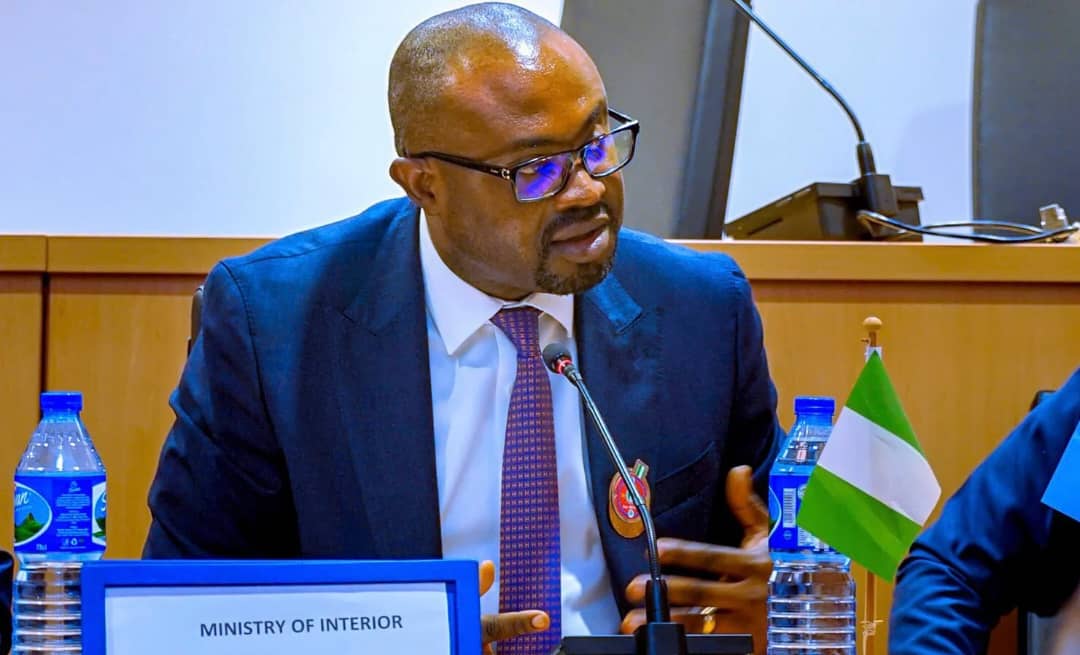News
FG seek collaboration to fight financial crime

The Federal Government say collaboration is crucial to to fighting financial crime and encouraging clean investment.
The Minister of Interior, Olubunmi Ojo, said this at the High-Level Roundtable: Public Private Partnerships (PPPs), to Fight Financial Crime, in Abuja on Tuesday.
The event was jointly organised by the Nigerian Financial Intelligence Unit (NFIU) and London Stock Exchange Group (LSEG).
Ojo expressed concern over individuals generating illicit funds from both government and private sector activities.
He said that there was need for strong collaboration between the Infrastructure Concession Regulatory Commission (ICRC), which is the agency responsible for PPP in Nigeria, and the NFIU to combat financial crime.
He said that PPPs must go thorough vetting by the NFIU to prevent illicit profit-making from the system.
Ojo said that this would ensure that funds generated from such partnerships were properly invested back into the social system, rather than being misappropriated for personal gain.
“We want investment, but we want clean investment. We want investment with trail. We want investment that we, as a people, can be proud of,” the minister said.
He said that the Federal Government was committed to collaboration, adding that it is important to know the source of every kobo invested in PPP.
He urged government agencies to work together, as their role is to compliment one another rather than compete.
“Going forward, I want to see a scenario whereby we work as different entities but with a shared value and a common goal.
“I want to see a scenario where the insurance sector is able to collaborate with NFIU; where there is no hiding place, where it is like standing in front of a mirror,” he said.
The Chief Executive Office, NFIU, Hafsat Bakari, said that the country and the global community faced a growing and interconnected web of financial crimes that undermine our economic integrity.
According to Bakari, it threatens the national, global security, and facilitates the spread of weapons and other illicit goods that destabilise our region.
“These threats are not only complex but also international in nature, taking advantage of gaps in oversight, gaps in regulation, and gaps in enforcement.
“More importantly, the networks that facilitate these crimes exploit weaknesses in our ability to work together and share information across all the stakeholders involved in the fight against financial crime.
”No one organisation, public or private, has the capacity to confront these challenges in isolation. It is only through cooperation that we can expect to win,” Bakari said.
She said that PPPs provided a structured and effective platform for the pooling of resources, intelligence, and technologies.
She said that they enable stakeholders to align their efforts, share actionable insights, and develop strategies to counter financial crimes at all levels.
“Financial crimes are rarely confined to national borders. By working with international partners like the LSEG, Nigeria can enhance its
participation in global initiatives against financial crimes,” she said.
Bakari said that a prime example of a successful PPP in Nigeria is the Bank Verification Number (BVN) initiative.
“The BVN, a partnership between the Central Bank of Nigeria (CBN), and commercial banks has been transformative in combating financial crimes.
“The BVN system provides every bank customer with a unique biometric identifier, and all linked accounts of a customer, significantly reducing identity fraud, enhancing transparency, and improving the ability of stakeholders to monitor financial transactions,” she said.
She said that the initiative had strengthened the nation’s AML/CFT framework, and demonstrates the potential of PPPs to deliver systemic impact.
“Another example of the use of PPPs in in our national AML/CFT/CPF framework is the effort to combat wildlife crimes, which are increasingly recognised as a significant predicate offence for money laundering.
“With the leadership of the Ministry of Environment, and the National Environmental Standards and Regulations Enforcement Agency, Nigeria has brought together financial intelligence from the banking sector, law enforcement and prosecutorial authorities.
“It is making significant strides in combating wildlife trafficking network that fund and benefit from criminal enterprises that undermine biodiversity,” she said.
The representative of United for Wildlife, Xolisile Khanyile, said that illicit wildlife trade should be viewed both as an environmental crime and as organised transnational crime that transcends borders.
“This crime generates a lot of money yearly. Yet when we deal with it, we deal with it as an environmental crime without looking at the financial aspects of it.
“This crime also fuels corruption and it fuels lots of other financial crimes,” she said.
She said that there was need to move beyond celebrating seizures and arrests of low-level poachers, as these individuals are easily replaceable and do not profit significantly from wildlife crimes.
Instead, she advocated for a “follow the money” approach to identify the kingpins who generate substantial profits from these activities.




 Davido's Net Worth & Lifestyle
Davido's Net Worth & Lifestyle 
